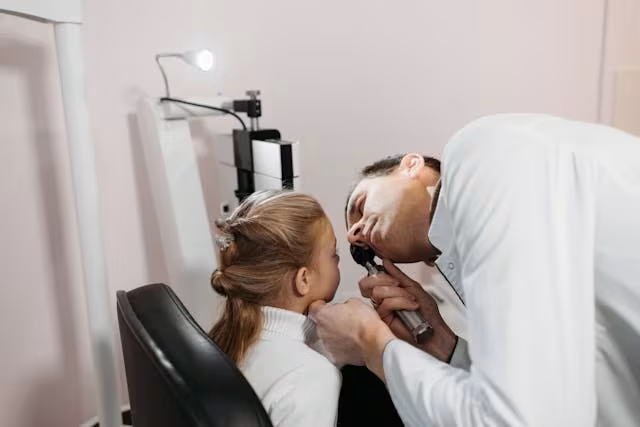Singapore’s healthcare system offers world-class medical care across all specialties, and otorhinolaryngology stands as one of the most comprehensive and advanced fields available.
Whether you’re dealing with chronic sinus issues, hearing difficulties, or more complex head and neck conditions, understanding what ENT specialists can offer is crucial for making informed healthcare decisions.
Understanding Otorhinolaryngology: More Than Just Ears, Nose, and Throat
Otorhinolaryngology, commonly known as ENT (Ear, Nose, and Throat) medicine, represents a surgical specialty focused on diagnosing and treating disorders affecting the ears, nose, throat, and related structures of the head and neck region.
This medical field has evolved significantly since its establishment in Singapore, now encompassing sophisticated surgical techniques and cutting-edge treatment modalities.
The specialty derives its name from three Greek words: “oto” (ear), “rhino” (nose), and “laryngo” (throat), reflecting the interconnected nature of these anatomical structures.
Modern ENT practice extends far beyond these traditional boundaries, incorporating advanced areas such as skull base surgery, facial reconstruction, and sleep medicine.
ENT specialists serve as both medical physicians and skilled surgeons, capable of providing non-surgical treatments alongside complex surgical interventions.
This dual expertise allows them to offer comprehensive care pathways tailored to each patient’s specific needs and condition severity.
Read more: Which ENT Doctor in Singapore Should You Consider?
Recognizing When You Need ENT Specialist Care
Many people delay seeking ENT consultation, often dismissing symptoms as temporary inconveniences.
However, certain warning signs warrant prompt professional evaluation to prevent complications and ensure optimal treatment outcomes.
Immediate consultation is recommended for:
- Persistent hearing difficulties or sudden hearing loss
- Chronic nasal congestion lasting more than three months
- Changes in voice quality or prolonged hoarseness
Additional symptoms requiring evaluation include sleep-related breathing difficulties, loud snoring, lumps or masses in the neck, head or face region, chronic coughing without respiratory illness, facial numbness or weakness, difficulty breathing through the nose, recurring sinus infections, problems with taste or smell, and excessive daytime fatigue possibly related to sleep disorders.
The interconnected nature of ear, nose, and throat structures means that problems in one area often affect others.
For instance, chronic nasal congestion can lead to ear problems, while throat issues may impact breathing patterns during sleep.
Major Areas of ENT Specialization
Singapore’s ENT specialists offer expertise across multiple subspecialty areas, each requiring additional training and certification beyond basic ENT qualifications.
Ear Disorders and Hearing Health
Ear specialists focus on conditions affecting hearing, balance, and ear structure.
Their expertise covers everything from simple wax removal to complex cochlear implant surgery.
Key conditions treated include central auditory processing disorder, facial nerve disorders, hearing loss treatment, tinnitus, balance disorders, and cochlear implant services.
Advanced treatments available encompass cochlear implant surgery, bone-anchored hearing aids, microscopic ear surgery, and comprehensive balance testing.
Nasal and Sinus Care

Rhinology specialists address all aspects of nasal and sinus health, utilizing both medical management and advanced surgical techniques.
Common conditions managed include chronic sinusitis, nasal polyps, allergic rhinitis, deviated septum, and smell disorders.
Treatment approaches encompass endoscopic sinus surgery, balloon sinuplasty, septoplasty, and comprehensive allergy management.
Throat and Voice Disorders

Laryngology focuses on voice, swallowing, and throat conditions, serving patients from professional singers to those with cancer-related concerns.
Specialties include voice disorders, swallowing difficulties, throat cancer, laryngeal stenosis, gastroesophageal reflux affecting the throat, and professional voice care.
Head and Neck Surgery

This subspecialty addresses complex conditions involving tumors, trauma, and reconstructive needs in the head and neck region.
Areas of expertise encompass head and neck cancer surgery, thyroid and parathyroid surgery, salivary gland disorders, facial trauma reconstruction, skull base tumor removal, and lymph node evaluation.
Pediatric ENT Care
Children require specialized approaches due to their unique anatomy and developmental considerations.
Common pediatric conditions include chronic ear infections and hearing concerns, tonsil and adenoid problems, congenital abnormalities, childhood sleep apnea, speech and language-related ENT issues, and foreign body removal.
Sleep Medicine Integration
Many ENT specialists now incorporate sleep medicine into their practice, addressing breathing-related sleep disorders.
Sleep-related services encompass sleep apnea evaluation and treatment, snoring reduction procedures, upper airway stimulation therapy, CPAP alternative treatments, and comprehensive sleep study coordination.
Common Conditions Treated by ENT Specialists
Understanding the breadth of conditions managed by ENT specialists helps patients recognize when specialist care is needed.
Respiratory and Breathing Issues
This condition affects millions globally and involves prolonged inflammation of sinus cavities.
Symptoms persist for twelve weeks or longer despite treatment attempts, significantly impacting quality of life through facial pressure, nasal congestion, and reduced sense of smell.
A serious condition where breathing repeatedly stops during sleep, potentially leading to cardiovascular complications if untreated.
ENT specialists evaluate anatomical factors contributing to airway obstruction and offer surgical solutions when appropriate.
Deviated Septum:
The thin wall separating nasal passages may be displaced, causing breathing difficulties, recurring infections, and sleep disruption.
Surgical correction can dramatically improve nasal airflow and overall quality of life.
Hearing and Balance Disorders
Sensorineural Hearing Loss:
Often age-related or noise-induced, this type of hearing loss affects the inner ear or auditory nerve pathways.
Treatment options include hearing aids, assistive devices, and in severe cases, cochlear implants.
Vertigo and Dizziness:
These balance disorders can stem from inner ear problems, affecting daily activities and increasing fall risk.
Proper diagnosis determines whether medical management or surgical intervention is most appropriate.
The perception of sound without external stimuli affects approximately one in five people.
Comprehensive evaluation helps identify underlying causes and develop personalized management strategies.
Voice and Swallowing Problems
Voice Disorders:
Changes in voice quality, pitch, or volume can result from various causes including vocal cord lesions, neurological conditions, or overuse injuries.
Early intervention prevents permanent damage and preserves vocal function.
Difficulty swallowing can occur at any age and may indicate serious underlying conditions.
Comprehensive evaluation includes imaging studies and specialized swallowing assessments.
Cancer-Related Conditions
ENT specialists play crucial roles in detecting and treating cancers of the head and neck region, including:
- Laryngeal (voice box) cancer
- Nasopharyngeal cancer
- Thyroid cancer
- Oral and throat cancers
- Salivary gland tumors
Early detection significantly improves treatment outcomes, making regular screening important for high-risk individuals.
Types of ENT Surgeons and Their Specializations
Singapore’s ENT community includes various subspecialists, each bringing focused expertise to specific conditions.
| Subspecialty | Primary Focus | Common Procedures |
|---|---|---|
| Otology/Neurotology | Ear and balance disorders | Cochlear implants, acoustic neuroma surgery, ear reconstruction |
| Rhinology | Nose and sinus conditions | Endoscopic sinus surgery, septoplasty, nasal reconstruction |
| Laryngology | Voice and throat disorders | Vocal cord surgery, airway reconstruction, voice rehabilitation |
| Head & Neck Surgery | Cancer and complex conditions | Tumor removal, reconstruction, thyroid surgery |
| Pediatric ENT | Children’s conditions | Tonsillectomy, ear tube placement, congenital repair |
| Facial Plastics | Cosmetic and reconstructive | Rhinoplasty, facial reconstruction, trauma repair |
| Sleep Surgery | Sleep-related breathing | UPPP, tongue base reduction, inspire therapy |
Choosing the Right Subspecialist
Selecting the appropriate ENT subspecialist depends on your specific condition and treatment needs.
Primary care physicians often provide initial referrals, but understanding subspecialty focuses helps ensure optimal care.
For complex cases involving multiple systems, subspecialists frequently collaborate to provide comprehensive treatment plans.
This team approach is particularly common in cancer care, where surgeons, medical oncologists, and radiation specialists work together.
Training and Qualifications of ENT Specialists
ENT surgery represents one of the most demanding medical specialties, requiring extensive training and ongoing education.
Educational Pathway
Undergraduate Medical Education:
Future ENT specialists begin with a standard medical degree, typically requiring four years of intensive study covering all major medical disciplines.
Residency Training:
ENT residency programs span five years, beginning with a foundational year covering general surgery, emergency medicine, critical care, and anesthesia.
The remaining four years focus specifically on ENT conditions, surgical techniques, and subspecialty rotations.
Fellowship Training:
Many ENT specialists pursue additional fellowship training in subspecialty areas, adding one to two years of focused experience in fields like head and neck surgery, otology, or pediatric ENT.
Certification and Continuing Education
Board certification demonstrates that specialists have met rigorous training standards and passed comprehensive examinations.
In Singapore, ENT specialists must maintain certification through continuing medical education and periodic recertification processes.
Ongoing requirements include regular continuing medical education credits, participation in professional societies and conferences, maintenance of surgical privileges at accredited institutions, and periodic skills assessment and examination.
Surgical Training Scope
ENT surgery encompasses one of the widest ranges of surgical approaches in medicine.
Specialists must master microscopic surgery for delicate ear procedures, endoscopic techniques for sinus and nasal surgery, open surgical approaches for major tumor removal, robotic-assisted surgery for throat and neck conditions, laser surgery for various applications, and reconstructive techniques for complex cases.
This diverse skill set allows ENT specialists to address conditions ranging from simple office procedures to complex multi-stage reconstructions.
What to Expect During Your ENT Consultation
Understanding the consultation process helps patients prepare effectively and ensures productive appointments.
Initial Evaluation Process
Medical History Review:
Your specialist will conduct a comprehensive review of symptoms, including onset, duration, severity, and factors that worsen or improve your condition. Bringing a written summary of symptoms helps ensure nothing is overlooked.
Physical Examination:
The examination typically includes inspection of the ears using otoscopy, nasal endoscopy to visualize nasal passages and sinuses, and throat examination using specialized mirrors or flexible scopes.
Diagnostic Testing:
Depending on your condition, additional testing may include audiometry for hearing assessment, imaging studies (CT or MRI scans), allergy testing for sinus conditions, voice analysis for vocal disorders, and balance testing for dizziness complaints.
Preparing for Your Appointment
Documentation to bring includes a complete list of current medications and supplements, previous medical records related to your condition, insurance information and referral documentation, and a list of questions or concerns you want to address.
Symptom tracking:
Keep a diary of symptoms for several days before your appointment, noting patterns, triggers, and severity changes.
Treatment Planning and Options
Following evaluation, your specialist will discuss treatment options, which may include conservative management through medical treatment, lifestyle modifications, or non-invasive therapies.
Minimally invasive office-based procedures can address certain conditions without requiring operating room intervention.
When surgical intervention is recommended, your specialist will explain the procedure, expected outcomes, risks, and recovery process in detail.
Complex conditions may require multidisciplinary care, and your ENT surgeon will facilitate appropriate referrals and communication with other specialists.
Cost Considerations and Insurance Coverage in Singapore
Healthcare costs vary significantly based on condition complexity, treatment approach, and healthcare setting chosen.
Typical Procedure Costs
| Procedure Type | Private Sector Cost Range |
|---|---|
| Basic Consultation | S$150 – S$300 |
| Nasal Endoscopy | S$160 – S$380 |
| Ear Tube Insertion (per ear) | S$440 – S$3,450 |
| Functional Sinus Surgery | S$5,050 – S$9,150 |
| Complex Sinus Surgery | S$6,700 – S$10,300 |
| Tonsillectomy | S$3,000 – S$6,000 |
| Septoplasty | S$4,000 – S$8,000 |
Note: Costs vary based on complexity, bilateral procedures, and additional interventions required.
Insurance and Medisave Coverage
Many ENT procedures qualify for Medisave coverage, though limits and conditions apply.
Common covered procedures include diagnostic endoscopy procedures, medically necessary surgeries, cancer treatment procedures, and hearing aid assessments.
Private Insurance:
Coverage varies significantly between plans. Key considerations include pre-authorization requirements for procedures, specialist consultation coverage limits, annual benefit caps for specific treatments, and coverage for second opinions or specialized testing.
Direct Billing:
Many private ENT specialists offer direct billing to insurance companies for covered services, simplifying the payment process for patients.
Public vs. Private Healthcare Options
Public Healthcare System:
Singapore’s public hospitals offer comprehensive ENT services with subsidized rates for citizens and permanent residents. Wait times may be longer for non-urgent conditions.
Private Practice Benefits:
Private ENT specialists typically offer shorter appointment wait times, extended consultation duration, and more flexible scheduling options.
Choosing the Right ENT Specialist in Singapore
Selecting an appropriate ENT specialist involves evaluating multiple factors beyond basic qualifications.
Research and Referral Sources
Primary Care Referrals:
Family physicians often provide initial referrals based on your specific condition and their knowledge of local specialists’ expertise areas.
Specialist Networks:
Many ENT conditions benefit from multidisciplinary care, so choosing specialists affiliated with comprehensive medical centers can facilitate coordinated treatment.
Professional Recommendations:
Other healthcare providers, including pharmacists, audiologists, and speech therapists, often have insights into specialist expertise and patient satisfaction.
Evaluating Specialist Credentials
Board Certification:
Verify that specialists maintain current board certification in otorhinolaryngology and any relevant subspecialties.
Hospital Affiliations:
Consider the quality and reputation of hospitals where the specialist has admitting privileges, as this often reflects their professional standing.
Subspecialty Training:
Match specialist expertise with your specific condition needs. Complex cases often benefit from subspecialty-trained surgeons.
Experience Volume:
Inquire about the specialist’s experience with your specific condition, particularly for complex or rare disorders.
Communication and Compatibility
Communication Style:
Choose specialists who explain conditions and treatments clearly, listen to concerns, and involve you in decision-making processes.
Accessibility:
Consider factors such as appointment availability, emergency contact procedures, and staff responsiveness.
Technology Integration:
Modern ENT practices often incorporate advanced diagnostic equipment and treatment technologies, which can improve outcomes and patient experience.
Questions to Ask During Consultation
- What is your experience treating my specific condition?
- What are all available treatment options, including non-surgical approaches?
- What are the risks and benefits of recommended treatments?
- How many similar procedures do you perform annually?
- What should I expect during recovery?
- When should I expect to see improvement?
- What follow-up care will be needed?
ENT Services and Facilities in Singapore
Singapore’s healthcare system provides comprehensive ENT services across multiple settings, from primary care clinics to specialized tertiary centers.
Historical Development
ENT services in Singapore have evolved significantly since the 1920s, when the specialty was first introduced under general surgery oversight.
The establishment of dedicated ENT departments began in the 1950s, with Singapore General Hospital leading the development of specialized services.
Key milestones include the establishment of the first independent ENT unit in 1957, introduction of microscopic surgery and advanced diagnostic equipment in the 1980s, development of subspecialty programs in the 1990s, integration of robotic and endoscopic technologies in the 2000s, and expansion of sleep medicine and facial plastic surgery services in the 2010s.
Current Service Landscape
Major Public Hospitals:
Singapore General Hospital, Tan Tock Seng Hospital, and National University Hospital offer comprehensive ENT services with subspecialty expertise and training programs.
Private Healthcare:
Numerous private hospitals and specialist clinics provide ENT services with shorter wait times and premium amenities.
Specialized Centers:
Dedicated facilities focus on specific conditions such as hearing centers, voice clinics, and sleep disorder centers.
Technology and Innovation
Singapore’s ENT specialists utilize cutting-edge technology including 3D endoscopic surgical systems, robotic-assisted surgery platforms, advanced imaging and navigation systems, laser surgery equipment, computer-assisted hearing aid fitting, and telemedicine consultation capabilities.
Research and Academic Programs
Several institutions conduct ENT research and training programs, contributing to global advancement in the field while ensuring local specialists remain current with latest developments.
Preparing for ENT Surgery
When surgical intervention becomes necessary, proper preparation enhances safety and optimizes outcomes.
Pre-Surgical Evaluation
Medical Clearance:
Comprehensive health evaluation ensures you’re fit for surgery and anesthesia. This may include blood tests, cardiac evaluation, and medication reviews.
Informed Consent:
Your surgeon will explain the procedure, expected outcomes, potential risks, and alternative treatments. Take time to ask questions and understand all aspects of the planned surgery.
Medication Management:
Some medications may need adjustment or temporary discontinuation before surgery. Follow your surgeon’s instructions carefully regarding prescription medications, supplements, and over-the-counter drugs.
Day of Surgery
Arrival and Preparation:
Arrive at the designated time for pre-operative preparation, which includes final medical assessment, anesthesia consultation, and surgical site preparation.
Anesthesia Options:
Depending on the procedure, you may receive local anesthesia, sedation, or general anesthesia. Your anesthesiologist will discuss options and address any concerns.
Family Communication:
Designate a family member or friend to receive updates during surgery and assist with post-operative care if needed.
Recovery and Post-Operative Care
Immediate Recovery:
Most ENT procedures allow same-day discharge, though some complex surgeries may require overnight observation or longer hospital stays.
Pain Management:
Follow prescribed pain medication schedules and use recommended comfort measures such as ice packs or throat lozenges as appropriate.
Activity Restrictions:
Adhere to activity limitations to promote healing and prevent complications. This may include avoiding heavy lifting, strenuous exercise, or specific head positions.
Follow-Up Appointments:
Attend all scheduled follow-up visits for wound assessment, suture removal if needed, and monitoring of healing progress.
Frequently Asked Questions
What is the difference between an ENT doctor and an otorhinolaryngologist?
There is no difference – these terms refer to the same medical specialty. “ENT” stands for Ear, Nose, and Throat, while “otorhinolaryngologist” is the formal medical term derived from Greek words meaning ear (oto), nose (rhino), and throat (laryngo).
Both terms describe doctors who specialize in diagnosing and treating conditions affecting the ears, nose, throat, and related head and neck structures.
How long does it typically take to get an appointment with an ENT specialist in Singapore?
Appointment wait times vary between public and private healthcare settings. Private ENT specialists typically offer appointments within one to two weeks for routine consultations, while urgent cases can often be seen within 24-48 hours.
Public hospital appointments may require longer wait times, ranging from several weeks to a few months for non-urgent conditions, though emergency cases receive immediate attention.
Do I need a referral from my family doctor to see an ENT specialist?
While referrals are not legally required to see private ENT specialists in Singapore, having one offers several advantages. Referrals help ensure appropriate specialist selection, may be required for insurance coverage, and provide the specialist with relevant medical history.
For public hospital appointments, referrals from polyclinics or general practitioners are typically necessary and help prioritize cases appropriately.
What should I bring to my first ENT consultation?
Bring a complete list of current medications and supplements, previous medical records related to your condition, insurance information, and any referral letters. It’s helpful to prepare a written summary of your symptoms, including when they started, what makes them better or worse, and any treatments you’ve already tried.
Also bring a list of questions you want to discuss with the specialist.
Are ENT procedures covered by Medisave in Singapore?
Many medically necessary ENT procedures are eligible for Medisave coverage, including diagnostic procedures like nasal endoscopy, surgical treatments for chronic sinusitis, ear tube insertions, and cancer-related surgeries.
Coverage amounts and conditions vary by procedure type. Cosmetic procedures typically are not covered unless performed for reconstructive purposes following trauma or cancer surgery.
How do I know if my condition requires surgery or can be treated with medication?
This determination depends on several factors including the severity and duration of your condition, your response to previous treatments, and the impact on your quality of life.
Many ENT conditions initially respond to conservative medical management, but surgery may be recommended when medications fail to provide adequate relief, when structural abnormalities require correction, or when serious conditions like cancer are diagnosed.
What is the recovery time for common ENT surgeries?
Recovery times vary significantly by procedure type. Simple procedures like ear tube insertion may require only a few days of restricted activity, while sinus surgery typically involves 1-2 weeks of recovery with full healing over several months.
Major surgeries such as head and neck cancer procedures may require several weeks to months for complete recovery.
Your surgeon will provide specific expectations based on your procedure and individual factors.
Can children see the same ENT specialists as adults?
While some ENT specialists treat patients of all ages, many conditions in children benefit from specialists with specific pediatric training.
Children have unique anatomical considerations, different disease patterns, and require age-appropriate treatment approaches.
Many ENT practices have specialists who focus specifically on pediatric patients or have extensive experience treating children alongside adults.
How often should I have follow-up appointments after ENT treatment?
Follow-up frequency depends on your specific condition and treatment type. A
fter surgery, initial follow-up appointments are typically scheduled within one to two weeks, followed by additional visits at one month, three months, and sometimes longer intervals.
Chronic conditions may require regular monitoring every few months or annually. Your specialist will establish an appropriate follow-up schedule based on your individual needs.
What are the signs that I should seek urgent ENT care?
Seek immediate medical attention for sudden complete hearing loss, severe facial weakness or paralysis, difficulty breathing or swallowing, severe throat pain with difficulty opening your mouth, high fever with severe sore throat, or any rapidly growing neck masses.
Additionally, any head or neck trauma resulting in hearing loss, vision changes, or persistent bleeding warrants urgent evaluation.
How do I prepare my child for an ENT appointment or procedure?
Explain the visit in age-appropriate terms, focusing on how the doctor will help them feel better.
Bring comfort items like favorite toys or books, and consider scheduling appointments at times when your child is typically well-rested and cooperative.
For procedures requiring sedation or anesthesia, follow all pre-procedure instructions regarding eating and drinking restrictions, and arrange for appropriate post-procedure care and transportation.
Can allergies cause ENT problems that require specialist care?
Yes, allergies frequently contribute to ENT conditions including chronic sinusitis, nasal congestion, ear problems, and throat irritation.
ENT specialists can perform comprehensive allergy testing, develop environmental control strategies, and coordinate treatment with allergists when appropriate.
Some ENT specialists have additional training in allergy management and can provide immunotherapy treatments alongside traditional ENT care.

